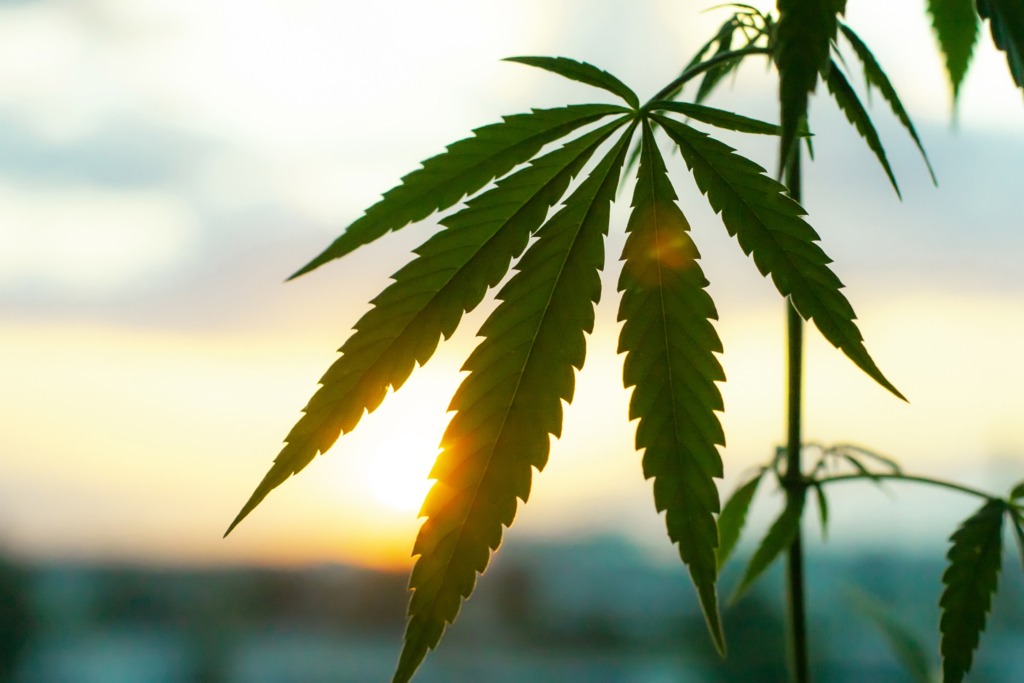Blog
CBD and D&O Insurance Challenges
This world of hemp-derived CBD products being marketed to the general public is a brave new world indeed. This week's guest post features my colleague Rachel Miller's analysis of the D&O liability and insurance situation. — Priya Huskins
What product claims to lower stress, ease the pain and discomfort associated with arthritis or cancer treatments, and potentially wipe out all coverage a director or officer thought they had in place through D&O insurance? The answer: CBD.

Cannabidiol, or CBD, the recent darling of both millennials and baby boomers, has exploded in popularity and product placement since the passage of the Agricultural Improvement Act of 2018.
Better known as the "Farm Bill," the 2018 Act legalized hemp cultivation and declassified hemp as a Schedule I controlled substance. Unlike marijuana, hemp-derived CBD contains less than 0.3% THC, the primary psychoactive ingredient in marijuana, and users tout a seemingly endless array of benefits.
Given CBD's rising popularity and decriminalization, many companies are quickly expanding their product assortments in an effort to establish early market share and consumer loyalty.
CBD is truly on its way to becoming mainstream: a 2019 Gallup Poll found that one in seven US adults use a CBD product, and the numbers are expected to grow as social stigma fades. A 2019 article in Forbes Magazine projected the market for CBD sales in the US would surpass $20 billion by 2024, and according to Pitchbook.com, venture capital and private equity investments within the cannabis vertical have skyrocketed, growing from $569 million invested in 2017 to $3.1 billion in 2019.
As CBD Booms, Issues Arise
A product that used to be taboo is now federally legal.The consumer market is broad and there's potential for exponential growth. What's the problem?
You Can't Insure that which is Illegal
As previously mentioned, the 2018 Farm Bill legalized CBD at a federal level. However, it also gave states the ability to "oversee" or restrict hemp production. As of 2020, three states have acted on their right to restrict hemp cultivation and sales: Idaho, Nebraska, and South Dakota.
Other states have restricted the use of CBD to medical use. One of the cornerstones of insurance is that you cannot insure something that's illegal. For national insurance carriers, the restrictive states have muddied the water.
Not All CBD-Related Business Is Approved by the FDA
While the United States Food and Drug Administration (FDA) is responsible for the legislation that lifted federal regulations around the cultivation and sale of hemp and hemp-derived products, it has also clarified that not all CBD-related business is free and clear.
FDA Commissioner, Scott Gottlieb, issued a statement in December 2018 to clarify its position on hemp-derived CBD and FDA oversight, explaining:
- It is not legal to add hemp-derived CBD to any food product (sorry, CBD gummies).
- It is not legal to market any CBD product with a "wellness" benefit.
- It is not legal to market any CBD product with a "therapeutic" benefit (including cosmetics).
- It is a prohibited act to introduce or deliver for introduction into interstate commerce any food to which CBD has been added.
The Insurance Sector Has Not Defined "CBD"
Turning to management liability insurance specifically, there are a few issues that need to be addressed and resolved for insurance to respond the way it is intended. Otherwise, a company's directors and officers may find out too late that their D&O insurance policy does not cover them in the way they thought the policy would.
(Note that there are many other insurance issues related to CBD, and those issues fall outside of the scope of this article.)
The single biggest D&O insurance issue is that the insurance industry has not defined "CBD." As a result, all companies with a CBD component––no matter how small––will have their coverage adjusted to reflect a cannabis risk.
Directors and officers at a company that provides a hemp-derived CBD sports lotion as a single SKU among thousands will generally have the same restrictions and limitations added to their policy as a company that operates a marijuana dispensary. Thus a company that once enjoyed a robust D&O policy will be limited to much more restricted coverage.
Additional challenges to insuring CBD risks cited by D&O insurance underwriters include:
- Insurance does not cover illegal activity. While the Farm Bill checked the box for CBD nationwide, the insurance industry still views cannabis risk as illegal, and the majority of US carriers are not willing to quote a CBD risk due to class of business. The carriers that will offer quotes are adding broad and restrictive policy endorsements.
- The FDA has strict regulations around how CBD is marketed to consumers. Any company that attaches the word "wellness" to their CBD product can expect to see a regulatory exclusion on their policy.
- While CBD has been declassified as a Schedule I drug nationwide, it may still be illegal state to state. Some policies have gone as far as precluding coverage for failure to operate under any required state local or federal licenses.
- There are absolute exclusions for bodily injury and property damage. For directors and officers, this means if someone has an adverse reaction to a CBD product that leads to a fatality, and as a result the value of the company declines, insurance would not respond to any suit brought against the company or its directors and officers by its shareholders alleging a breach of fiduciary duty.
- Exclusions for minors who access and use the product: States have varying ages for use by children, and insurers are looking to protect themselves from liability when a minor purchases CBD online.
- There are further problems for CBD products available to purchase online, such as interstate shipping.
While any of the exclusions listed above would dramatically narrow the scope of coverage on a D&O policy, the exclusionary endorsements for companies with a CBD risk can be extensive and exhaustive. In other words, the policy may be endorsed to say that there is no coverage for anything related to CBD.
Coverage may also be restricted in other ways:
- Offering coverage only on a public company form which limits coverage for the company to Securities Claims only.
- Offering coverage for Side A only––non-indemnifiable claims. There is no coverage at all for the corporation.
- Regulatory Exclusions with no Side A carvebacks.
- Price: Some carriers are open to providing the insurance, but the cost is prohibitive. When combined with the policy exclusions, which are often not negotiable due to agreements with re-insurers, you have to wonder what you're paying for.
The risks will also vary greatly depending on whether the directors and officers looking for coverage are at a public company or a private company. They will have the same core issues, outlined above, but public companies have the added risk of securities class action lawsuits.
Before the 2018 Farm Bill passed, companies with a cannabis component could not list on a US exchange. Since the restrictions lifted, per the D&O Databox (Woodruff Sawyer's proprietary database of D&O-related litigation), 14 companies have been sued to date.
Consider too the risks associated with purchasing a CBD-related company. While representations and warranties insurance might be very helpful with respect to containing the risks related directly to the transaction, all of the risks and concerns related to being a company that offers CBD products will flow up to the acquiring company.
If You're in the Business of CBD
Management liability policies for directors and officers are not a "check the box" or one-size-fits-all. They need to be tailored for each company, and the endorsements that extend or restrict coverage carefully negotiated.
If your company has expanded or is considering expanding its product offering to include a hemp-derived CBD product, it's imperative that you work with an expert.
Luckily, some skilled brokers have already researched the market and positioned themselves to negotiate on your behalf. While the coverage may still be restrictive, it's better to understand what is and isn't covered from the beginning than to buy a piece of paper for illusory protection.
Author
Table of Contents












